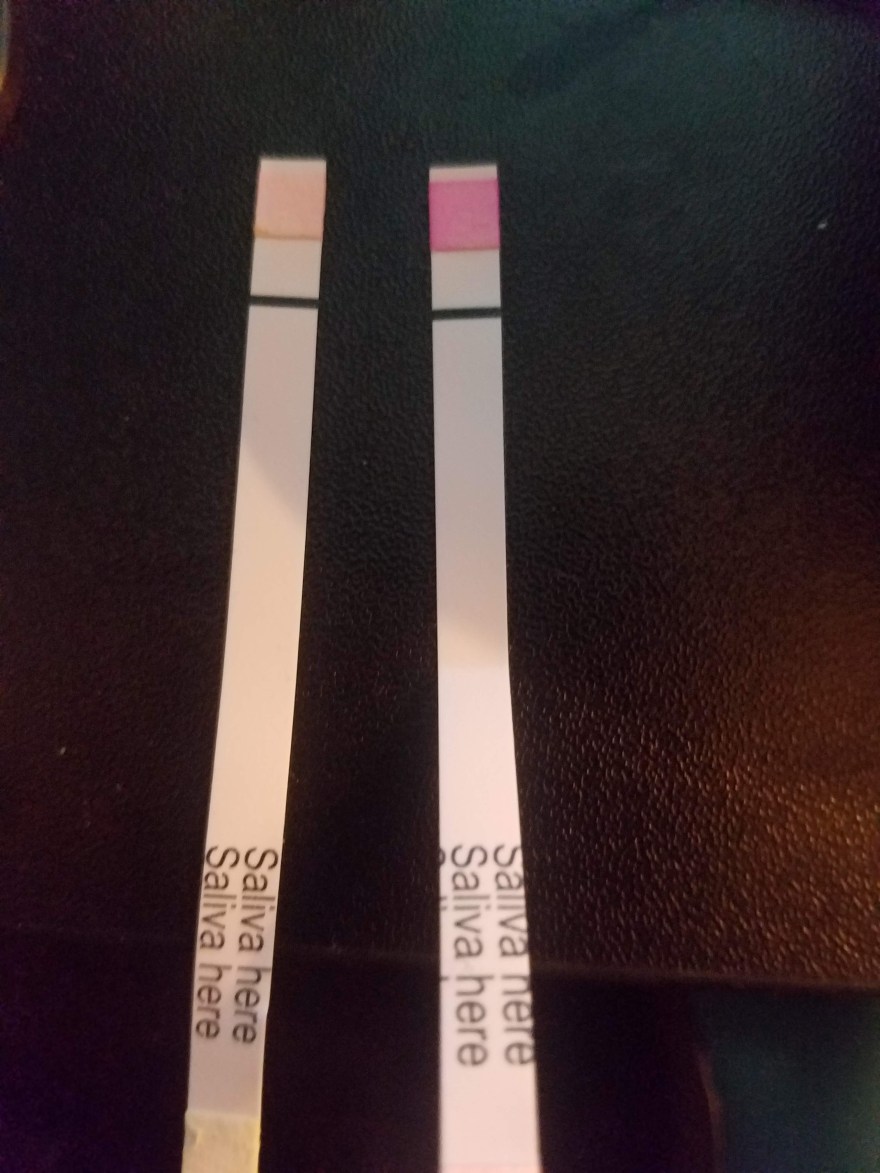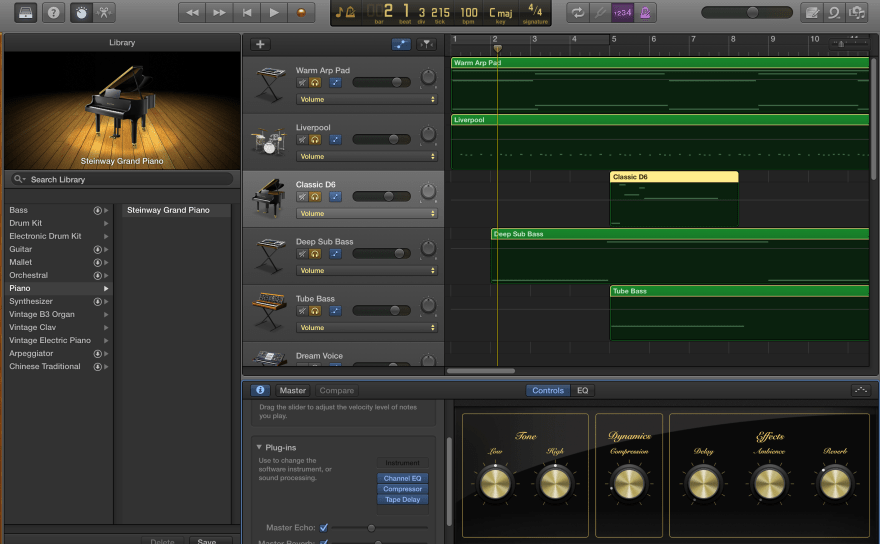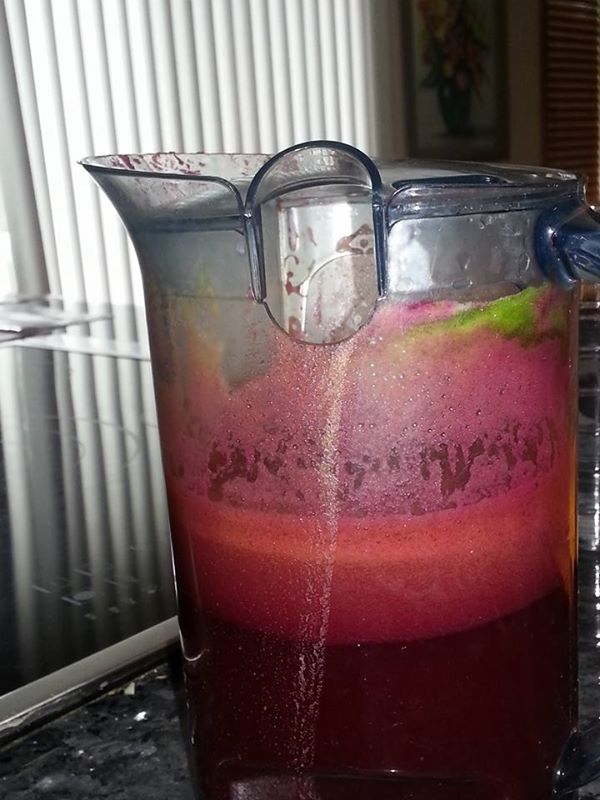
“When your passion exceeds your fear, you found your career.”–Brian Kidd
It was the spring of 2013 and I found myself jobless since my contract working for a mobile services startup through a staffing angency had expired. Just about 12 months prior to this my contract working for Google as a data analyst in their maps department ran out. I was becoming very tired of the revolving door that I found myself in and I knew I needed to change the path of my career because all roads seemed to lead to dead ends.
That summer, I found out about the Washington State Worker Retraining Program and knew that I had to take advantage of it. I also knew that it was time to really dive in and study what had interested me for years, but was mainly a hobby up until then—Web Developing. So I applied for the Worker Retraining Program in the summer of 2013 with aspirations of studying Web Development and the state accepted my application to enroll at Cascadia College in the Web Application Programming Technology Program.
Past Jobs Reflections of My Youth…
My entire life I have had many different types of jobs. My first job was as a paperboy for the Seattle Times, when I was 14 and 15 years old. It felt good to deliver the news to my neighbor’s doorsteps, as I was also, at this time, an avid reader and writer. I would write short stories, lyrics, and even poetry. I liked the idea of writing for a living, which several years later probably lead to me majoring in Journalism at the University of Washington.
My next job, when I was 16, was at a full-service Greek restaurant called, Pizza Bank, where I initially worked as a dishwasher. You might wonder, who would name their restaurant, Pizza Bank? Well, the owner, who was a Greek immigrant, named it that way because the restaurant was actually a converted bank, First Interstate Bank to be exact, until he bought the joint in 1983. So, why not call it the Pizza Bank?
I ate at Pizza Bank a lot during my youth (The Chicken Fettuccine Alfredo and Sausage Mostaccioli were my favorites, oh and of course, before my shift, we would get a free small meal and I would often opt for the delectable meatball sandwich), and my friends Jesse and Doug worked there, so I thought it would be a good job. And it was. I eventually became a line cook at the Pizza Bank and worked there during my early college days until I was 20-years-old. I only left because I was just tired of the place and wanted a change, for the most part.
My next job was as a line cook at the Pro Sports Club Bistro inside the famously luxurious Pro Sports Club in Bellevue. I heard about the job there through a high school friend who used to train at the club for basketball. He told me that the bistro based its menu on the Schwartz Brother’s restaurants, mostly Cucina Cucina. They even had a wood-fired oven mostly used for cooking pizzas and calzones and that excited me a bit as well.
I started working at the bistro when I was nearly 21 and stayed there until I was 23. During my tenure there I met a lot of rich Bellevue-ites along with some pretty famous athletes including John Johnson—who played on the 1979 NBA Champions Seattle Supersonics team—Gary Payton, Edgar Martinez, and even the cross-over dribble king, basketball star Tim Hardaway among others—Nate McMillan stopped in a few times as well, oh and I especially liked kidding around with former Sonics star Slick Watts—who was a regular and was hilarious—and his son, UW Husky basketball star, Donald Watts. At the bistro, I cooked for all the shifts, including the breakfast shift, which I learned to enjoy, although it was my least favorite.
At this time I was in college and honing in on a major. I loved being a line cook, but I was not so passionate about it that I wanted to make it a career. It was an excellent job for college since I could work evenings and on weekends. Looking back on it, I could have gone to culinary school to become a chef, or at least worked my way up in the restaurant industry, but it was just something that didn’t inspire me or create a fire in my belly.
From here on out, things get kind of messy, as most of our lives get messy, Due to some internal conflicts created by a falling out with a friend who worked at the Bistro, I went back to Pizza Bank for a couple years. I also worked as a Barista for Peet’s Coffee and even for about six months at Verizon Wireless in Customer Care before graduating from college, majoring in Journalism with a minor in music. (I had to quit the Verizon Wireless job because they would not work around my school schedule and wanted me to work only during the day.)
Now you might think this is where my career journey began and that my previous jobs were just to help pay for college and rent, and if you had asked me in my fresh-faced 20s what I thought of my work during my early to mid-20s, I would have regarded them as just jobs for the sake of having a job. However, now I realize how important those positions were.
As a paperboy, I learned the importance of delivering a product on time and preparing that product with quality and care. I also learned the importance of getting up on time to do a job, as on the weekends I would have to deliver the paper early in the morning, often getting up at 6 a.m. On Sundays, the papers were so heavy and bulky that my dad and I would load them into the trunk of his Toyota Camry and he would drive me around the neighborhood as I delivered papers, following the car with a steady jog and a determined look on my face.
As a paperboy, I also learned how to collect money from customers, some of which did not pay directly to the Times, so I would have to go to their doorsteps to collect. I learned very quickly how to be both nice and persuasive, especially with customers who did not like to pay on time. (By the way, my coolest customer was Jay Buhner, who played for the Mariners back in the day.)
As a line cook, I learned how to work with a team and take pride in my work. I learned how to work under duress during the rushes and how to think logically when a seemingly daunting task was put in front of me: For instance, at the Pizza Bank, during the dinner rush, dishes would stack up so fast that it would make you want to run out of the restaurant in order to flee (especially as a 16-year-old) and never look back. However, my boss, Ray, was a very motivational guy and he would show me how to organize and clean the dishes in an efficient way.
He would say to me, “Come on Kidd, I don’t want to see you have to work at McDonald’s.” That truly motivated me.
Then when I worked as both a prep and line cook—which I honestly never planned on doing—I learned some pretty valuable culinary skills. I was never intimidated by having to cook, but I also was a bit shy about cooking. That is until I had to learn the entire menu. I had not heard of Ramono or Kasseri cheese and although the Chicken Fettuccine Alfredo was one of my favorite dishes, until I became a cook, I didn’t know that both of those cheeses were added to the heavy cream of that dish. More importantly, I didn’t know how to prepare that dish until I worked in the front of the kitchen.
When I lived by myself as a bachelor for more than 10 years I enjoyed cooking for myself and I ate probably healthier than most 20 or 30-somethings because I wasn’t just buying fast food or making microwave dinners.
At the Pro Sports Club Bistro I learned how to interact face-to-face with the public because in addition to cooking, I would sometimes take orders at the front glass. I expanded on my culinary skills by cooking with a wood-fired oven and also cooking on a flat grill.
In my short time at Verizon Wireless in customer care, I learned some pretty valuable phone skills, how cellphones work, and how to work with CRM systems. This would later come in handy when I worked in advertising.
As a Barista, I expanded on my customer service skills more, working behind the register as well as behind the espresso machine. I learned to work and balance a till and also how to make a plethora of coffee and tea drinks.
Looking back, I realize that some might deem the aforementioned jobs as unskilled or medium-skilled labor. However, these jobs taught me valuable lessons about how to be a hard worker and a good employee. The so-called soft skills that I learned from these positions are just as important to me as the hard skills I have acquired during my later career path.
You might not see these jobs on my LinkedIn profile, but I consider them all as important in their own right.

Back to that fateful summer…
In fact, it was during my life-transitioning summer of 2013 that I worked for a friend’s landscaping business, as one of the partners was out with an injury. It was during this time that I discovered just how important it is to go outside more and also, how physically, mentally, and even psychologically beneficial working in nature can be!
During my second year at Cascadia, I took a lighter course load because I worked about 35 hours a week at the Federal Home Loan Bank of Seattle in Corporate Communications. This counted as school internship credit. While at the bank, I earned money to help pay for some school expenses, and I also got to work at the same company as my late father, who was Director of Research and Business Initiatives at the Bank.
I graduated from Cascadia in 2016, finding only part-time or independent work in Web Dev. So in 2018 I worked for about one year for another landscaping company. You might think, damn dude, you went through all that schooling and after all of that you had to earn extra money by landscaping, that must have sucked.
On the contrary…
In fact, I discovered that while working outside, mowing, edging, pruning, or what have you, that some of the answers to my toughest programming problems would suddenly pop in my head. It was like my brain had to be relaxed (not asleep and also not strained) but relaxed and almost in a flow-like state for it to work optimally. I would go home after landscaping for eight hours and instead of resting right away, I would head to the computer and implement the ideas I came up with while out in the fields, laboring away…
But, back to the transition itself…
First a quick preface or background:
It was 2001, close to when I was to finish my time at the University of Washington. I had a friend who was about to graduate from Western Washington University, but his emphasis was on Web Design and Economics—mine was on Journalism and Music. Now, I knew this guy was bright, but I didn’t consider him a math, engineering, or computer genius, necessarily. Not because I didn’t think he had the faculties or gumption, but because I didn’t think it interested him at all.
One thing we had in common was we were (are) both musicians. This fella started creating websites for the bands he played in as well as other bands. I was amazed. These websites were not the websites of the ’90s, which mostly seemed boring to me, but, with the help of Cascading Style Sheets and Javascript and a dash of PHP, this cat was coding some pretty fantastic websites that I viewed as multimedia installations, with message boards, media players and some pretty awesome colors and graphics.
I knew way back then, that I had to be involved in Web Design and Developing in some capacity. Never had anything computer-related captured my interest so much. However, just like those dishes piling up in the Pizza Bank kitchen, the task of learning how to create websites seemed daunting. Not only that, but it also seemed arcane and even unimaginable. I mean, only like, you know, nerds can do that stuff.
I liked the Journalism industry and wrote for a bit as well as getting into news publication advertising, but Web Design and Developing still loomed in the back of my mind. I would build simple websites and learn things online, but this was a little bit before all the online programming schools, so I wouldn’t get that far.
However, it was after leaving that mobile services startup back in the spring of 2013 that I finally had enough: It was time to turn that spark that had been cast in my heart 10 years earlier into a flame and pursue my interest in Web Developing…
School…
When I started attending Cascadia College, I had no idea—although I thought I did—what I was getting into. My original intent, although I did not know what to really call it, was basically to become a Web Designer with some Developer chops.
The first quarter there was a breeze, partially because I was already familiar with HTML, CSS, Photoshop. However, my second quarter was a come-to-Jesus moment in that it was now clear that in order to really get where I wanted to go with an enriching educational experience, I would have to learn things I had never seen before and there was really nothing (except maybe The Philosophy of Logic) in my previous education that I could base those things on: Networking Fundamentals, Java (Object Oriented Programming), Beginning Database, and also Advanced HTML and CSS (Interactive Authoring).
I nearly quit that quarter because it seemed that my preconceived idea of what becoming a Web Developer would involve, was not related to the courses I was taking. However, in hindsight, I can see how all the puzzle pieces fit and how they were necessary to learn and to use today.
To keep at it was more of execution in intuition than logic, in faith, than certainty and definitely stubbornness and pride than innate talent. The interesting thing is, programming has not only improved my developing skills but also it seems to have improved the way I think and solve everyday problems.
I would go so far to say it has even improved the things I hold very dear like programming music, writing, and even, peculiarly enough, performing music. It could be that programming helps integrate the right and left prefrontal cortex along with the frontal and parietal lobes. Maybe Steve Jobs was right when he said that everyone should learn how to program a computer, because it teaches you how to think.
Now you can think however you wish, of course, and there are many great thinkers who never learned how to program a computer. But I think what Jobs is saying is that programming touches on both intuition and logic, on art and science. Some of the best Mathematicians are not necessarily the best musicians and vice-versa, however, it could be that logic and art are more related than some might think.
As the famous guitar shredder Yngwie Malmsteen said regarding practicing hard music scales, modes, and chords, you have to eat your Brussel Sprouts. Logic and programming have definitely been my Brussel Sprouts, and they have made me a better designer, developer, artist, and maybe even human being.
Since earning my Associate in Applied Science in Web Application Programming Technology-Web Emphasis at Cascadia, I earned a full-stack JavaScript Techdegree from Treehouse and am about 80 percent finished with the UX Design Techdegree, which is projected to be finished by July 2020.
All this work paid off. In fact, it was on 02.11.2020 that I started my first major job as a Web Developer at Boeing. Finally. And then,,,
Laid off…
I was laid off because of the COVID-19 outbreak and my last day was 03.26.2020. I had been working from home since 03.06.2020, but I never thought that I would be let go, since before I left, my department was actually planning on ramping things up and hiring more designers and developers…However, half of my department was let go…
You might say I should be pretty angry because of what happened. Well, initially I was livid. Up until my last day, I worked my hardest and even finished a new page for the Boeing.com website, greatly impressing the seasoned, full-time Boeing program manager. (See Testimonial)
It was on my very last day that the anger and frustration almost became suffocating. I could barely type correctly and felt like I was going to spontaneously combust.
However, I have no qualms with my former employer. Most employers, including Boeing, did not see this pandemic coming and it was in their best financial interest to let us go; I understand.
My anger was mostly aimed at how hard I had worked to get a foot in the door in the Web Developing industry. My wife and I were elated. We started making plans to move and start a family because now we had the financial wherewithal to do so.
And just as quickly as that spark in my heart had been turned into flame, the reality of a pandemic doused it all out.
Right after my exit conversation over the phone with my boss, I started thinking of ideas to make money. I could pursue music licensing further and associate and affiliate marketing. I could expand on my small side multimedia business. I could and can still do these things, and maybe I will do them.
But I won’t give up on having a steady job in the meantime. With Web Dev you can easily work from home, which is ideal in this current pandemic situation. All in all, I know it will all work out.
Over the last couple of months of our social distancing and quarantine, I have been able to reflect on my past, including the jobs that I’ve held. Sometimes I cannot believe how quickly time has passed and also what I have been through to get myself on the right path, which is relative, as this is MY path and although it took a while to beat back the bushes, it’s now all laid out in front of me.










